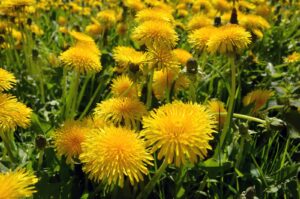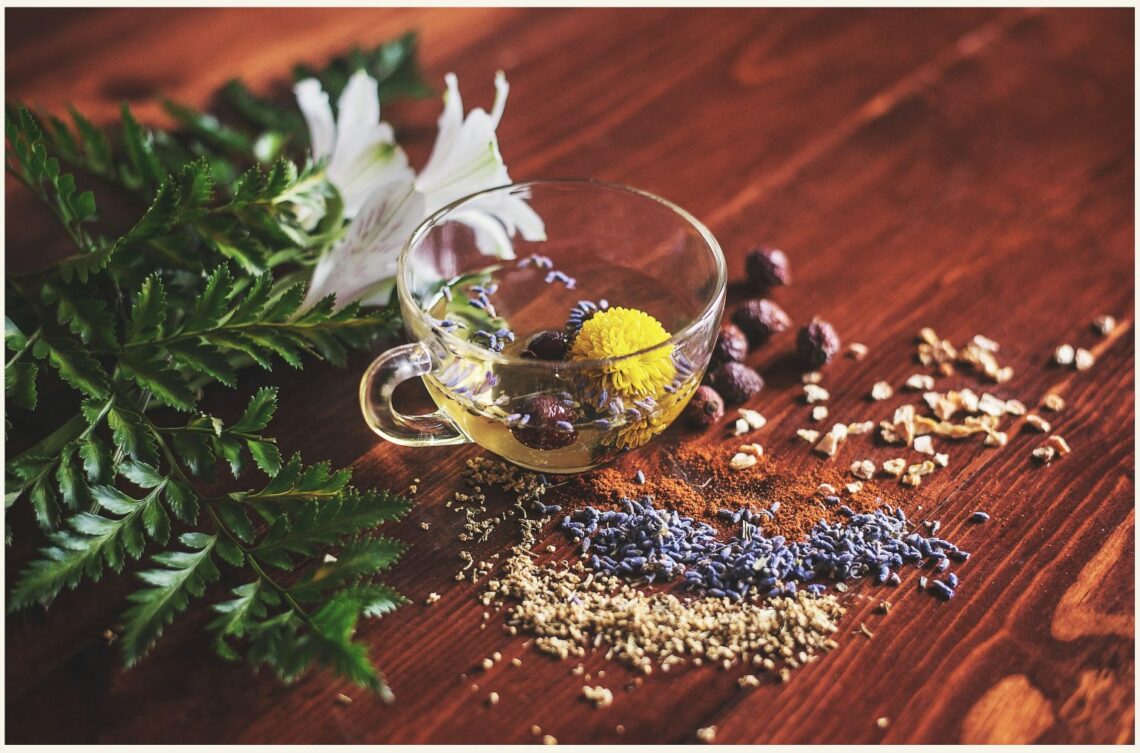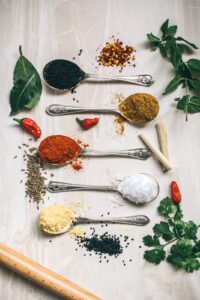Modality of the Month: Plant Medicine
Submitted by: Rene Milliman RN, BSN
Plant medicine is a very simple means of treating ailments without traditional pharmaceuticals. There are many items we think of as traditional foods, and herbs & other plants that we can incorporate into use. These medicinal plants can also be used to improve overall health and wellness. Many therapeutic plants are found in our everyday kitchens. For one example, garlic can help to ward off illness and help lower blood pressure and cholesterol.
 My first introduction to recognizing plants as medicine was when my older cousin who lived next door started collecting dandelions to make tea. Dandelion is a liver cleanser, supports kidneys & your immune system, and promotes good digestion. Isn’t it interesting that the plant we create evermore poisonous chemicals to eradicate is the very plant that will help the body cleanse itself of harmful chemicals? Now when I have friends wanting to get rid of their dandelions I am happy to come dig them up for them! Or I’ll leave my own growing for the bees to enjoy and help us grow more medicine.
My first introduction to recognizing plants as medicine was when my older cousin who lived next door started collecting dandelions to make tea. Dandelion is a liver cleanser, supports kidneys & your immune system, and promotes good digestion. Isn’t it interesting that the plant we create evermore poisonous chemicals to eradicate is the very plant that will help the body cleanse itself of harmful chemicals? Now when I have friends wanting to get rid of their dandelions I am happy to come dig them up for them! Or I’ll leave my own growing for the bees to enjoy and help us grow more medicine.
Here is a list just a few plants that I find super helpful, and these are the ones I find easier to suggest to others who may never have used plants as medicine before
Peppermint – stomach upset/nausea
Chamomile – heartburn, relaxation
Lemon/Ginger – GI upset
Echinacea – help the body fight infections/shorten duration of illness
Hawthorne – help lower blood pressure and protection against heart disease
Catnip – muscle relaxer & sleep
Raspberry leaf – easing PMS
 I have not listed every use for each plant here. Each one has a multitude of uses which is incredible, but overwhelming. My recommendation is to consume them in whatever way is most comfortable for you. Sure, a strongly brewed decoction made of the strongest plant parts might have more strength to it. But if the process to make it is lengthy, and the end result is less palatable for you, it’s less likely that you will make it a part of your practice. Find the way that works for you.
I have not listed every use for each plant here. Each one has a multitude of uses which is incredible, but overwhelming. My recommendation is to consume them in whatever way is most comfortable for you. Sure, a strongly brewed decoction made of the strongest plant parts might have more strength to it. But if the process to make it is lengthy, and the end result is less palatable for you, it’s less likely that you will make it a part of your practice. Find the way that works for you.
Because most plant medicine is not approved for use by the FDA, products can’t have more than a generalized use listed on them. This requires us to do research to learn what they can do. It also makes it challenging for plant medicine to become more commonly used. When choosing between Pepto Bismol and Ginger Tincture for GI issues, people are going to choose the label that tells them what they are buying it for and how to take it. This is why it’s helpful to introduce plant medicine simply and in the moment. Have a friend over or a patient that is complaining of nausea? Make them a cup of peppermint tea. Simply the act of holding a warm beverage in your hands is therapeutic. And when they find relief, they will remember that for the future. And perhaps that will be the start of their journey to learn more about herbs and food as medicine.





